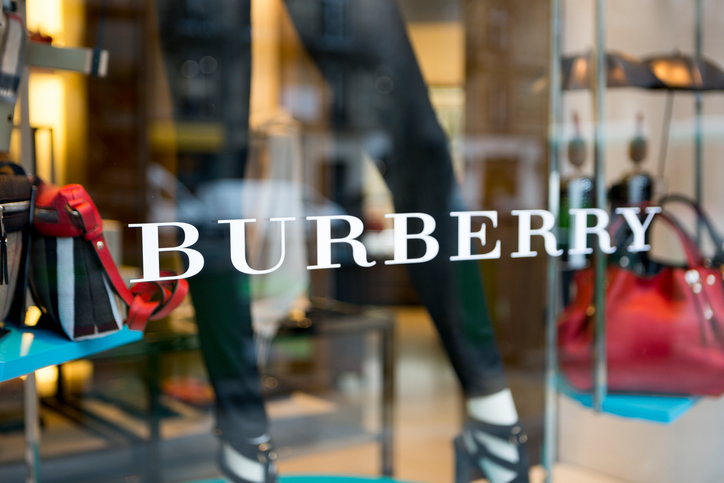Burberry results impress, so what's wrong with the share price?
11th November 2021 08:24
by Richard Hunter from interactive investor
With a reputation for big moves on results day, our head of markets runs through the high-end retailer's results to find out why they've just fallen so sharply.

Burberry’s (LSE:BRBY) previous decision to underline its status as a high-end retailer is proving to be a winning strategy.
Alongside exiting its ties with non-luxury partners and generally eschewing concessions, the most striking part of the group’s revised strategy was to move away from discounting its products. The result is something of a virtuous circle – full-price sales are leading to higher margins, which in turn is boosting cash generation within the business.
An example of this shift is in comparable store sales growth. Although the number is now just 1% of pre-pandemic levels, full-price sales in the first half have increased by 18% over that period. At the same time, revenues for the 26 weeks ended 25 September 2021 have also recaptured the heights of 2019, and improved by 38% as compared to last year. Retail revenues, which account for the majority of the group’s income, rose by 34% while a strong order book also propelled Wholesale higher by 60%.
- New forecast: when the FTSE 100 will hit 8,000
- ii COP26 hub: see tips, news, comment and analysis from our experts
Burberry has been active in maintaining its relevance and presence in each of its geographies. This is being achieved through a mixture of digital and physical events, such as localised marketing campaigns, which are increasing “brand heat” while also attracting a new generation of fashion-conscious consumers. The company’s revamp of its store portfolio, which involves a new concept, is showing early promising signs and is also having the effect of attracting high-spending clientele.
The cash generation has enabled a reduction in net debt, which has opened the door for further investment into the business. It has also meant the return of an interim dividend which implies a yield approaching 3%, as well as a share buyback programme of £150 million. Given an operating profit figure which has not only risen by 135% but is also comfortably ahead of market expectations, and underpinned by an increase in operating margin from 10% to 17.1%, the company is set fair to maintain its recent momentum.
The route is not all plain sailing, however, particularly in the group’s core market of China, where a combination of factors have put the economy under some pressure. Quite apart from some regional lockdowns, there have been economic factors at play which could damage consumer confidence. The lack of tourism is also impacting the company’s aspirations in Europe especially, while further out the removal of the non-EU VAT scheme could impact future sales.
- Bill Ackman: an industry as certain as food and oxygen
- Bill Ackman: hot sectors and the economy in 2022
- Jeff Prestridge: 25 good reasons to buy the UK stock market
- Take control of your retirement planning with our award-winning, low-cost Self-Invested Personal Pension (SIPP)
The initial share price reaction to the numbers reflects a weakening of sales during the second quarter, even though numbers for the first half as a whole are in comfortably positive territory, and generally high expectations. The move takes some sheen from a share price which had risen by 22% over the last year, as compared to a hike of 15% for the wider FTSE100, although yet to regain pre-pandemic levels, having dipped by 4% over the last two years.
Even so, an improving Chinese economy and the gradual return to international tourism have the potential to boost further growth. Alongside the company’s concentration on full-price sales, the market consensus has recently improved to reflect these combined prospects and now comes in at a "buy".
These articles are provided for information purposes only. Occasionally, an opinion about whether to buy or sell a specific investment may be provided by third parties. The content is not intended to be a personal recommendation to buy or sell any financial instrument or product, or to adopt any investment strategy as it is not provided based on an assessment of your investing knowledge and experience, your financial situation or your investment objectives. The value of your investments, and the income derived from them, may go down as well as up. You may not get back all the money that you invest. The investments referred to in this article may not be suitable for all investors, and if in doubt, an investor should seek advice from a qualified investment adviser.
Full performance can be found on the company or index summary page on the interactive investor website. Simply click on the company's or index name highlighted in the article.